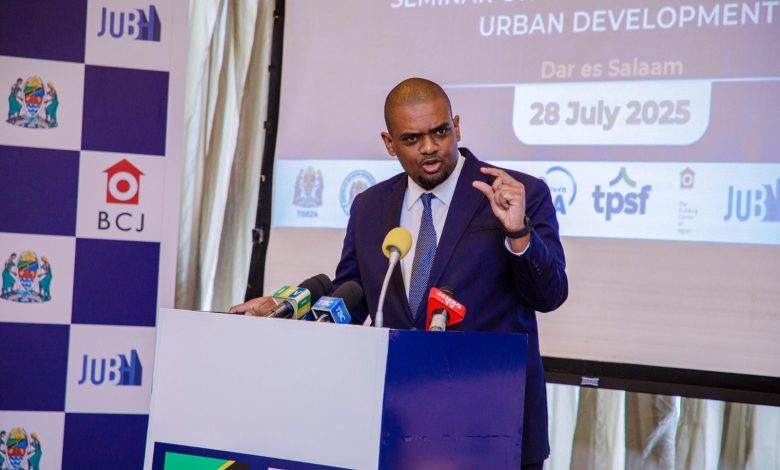Govt pushes for investment in real estate to bridge housing deficit

DAR ES SALAAM: THE government has called on both local and foreign investors to channel capital into Tanzania’s real estate sector, to support sustainable urban development and address the country’s significant housing deficit, which currently stands at 3.8 million units.
Speaking at the Tanzania-Japan Seminar on Housing and Urban Development in Dar es Salaam yesterday, the Minister for Lands, Housing and Human Settlements Development, Mr Deogratius Ndejembi, attributed the growing shortfall to rapid urbanisation experienced over the past five decades.
Mr Ndejembi said there is a strong need for collaboration with international partners, particularly from Japan, to complement government efforts in expanding housing access through affordable mortgage schemes, innovative financing options and green building technologies.
“We believe that a more competitive real estate market with many players will enable more Tanzanians to access decent housing at affordable costs,” said Mr Ndejembi.
He noted that Tanzania’s urban population has surged from 6.2 per cent in 1967 to 34.9 per cent in 2022, with projections estimating it will reach 59 per cent by 2050, making Tanzania one of Sub-Saharan Africa’s fastest urbanising nations.
Cities such as Dar es Salaam, Dodoma, Mwanza and Arusha, along with growing towns like Geita and Katavi, have witnessed significant urban growth highlighting both the challenges and economic opportunities in the real estate sector.
Mr Ndejembi pointed out that the housing gap is particularly acute for low and middle-income earners, who often face high rental costs, expensive construction materials and limited access to affordable financing.
To support the housing sector, the government has already implemented a VAT exemption for house units priced below 50m/-, with considerations underway to extend this to houses valued below 100m/-.
In March this year, President Samia Suluhu Hassan launched the revised National Land Policy (2023 Edition), aimed at stimulating investment in housing and real estate.
Mr Ndejembi also announced the forthcoming establishment of a National Land Commission to streamline service delivery, including property development approvals.
ALSO READ: Tanzania launches survey to assess foreign investment impact
He further stressed the importance of smart, green urban planning, urging stakeholders to embrace sustainable development practices powered by clean energy, low emissions and high-density vertical housing.
“To build cities that are green, resilient and inclusive, we must align our policies with long-term investment priorities. We need to develop more housing units within smaller land areas,” he stated.
Executive Counsellor of the Building Centre of Japan and head of the Japanese delegation, Dr Izumi Hiroto expressed Japan’s interest in partnering with Tanzania to deploy cutting-edge housing technologies through mortgage-based schemes.
He noted that Japan overcame a massive housing crisis after World War II by adopting effective housing policies and advancing technological solutions, lessons that could be shared with Tanzania.
“Today, Japan has an excess of eight million housing units,” Dr Hiroto revealed.
“With its youthful population averaging 18 years, Tanzania offers tremendous potential for collaboration, especially as Japan’s population ages, with a national average of 48 years.”
On his part, Director of Special Economic Zones at the Tanzania Investment and Special Economic Zones Authority (TISEZA), Mr Revocatus Rasheli, encouraged Japanese investors to develop commercial buildings within the country’s Special Economic Zones (SEZs).
Since the establishment of the Tanzania Investment Centre in 1997 (now part of TISEZA), Japanese Foreign Direct Investment (FDI) has reached over 40 million US dollars (about 102bn/- ), covering sectors such as manufacturing, commercial real estate, agriculture and tourism.






858917 774129Some truly marvelous function on behalf of the owner of this web site , dead excellent articles . 916848